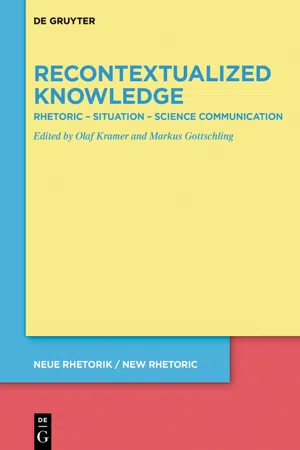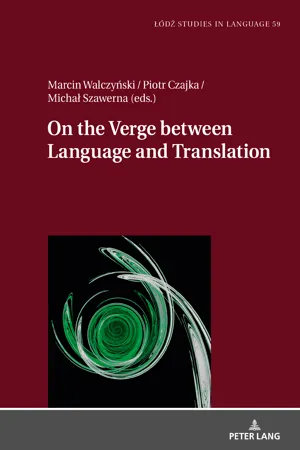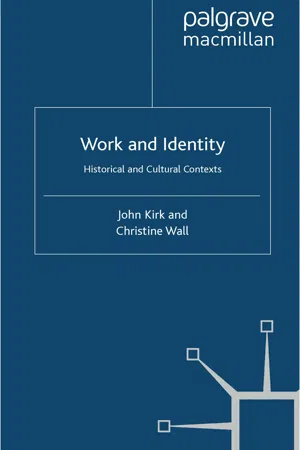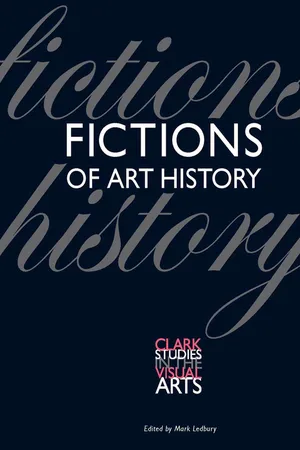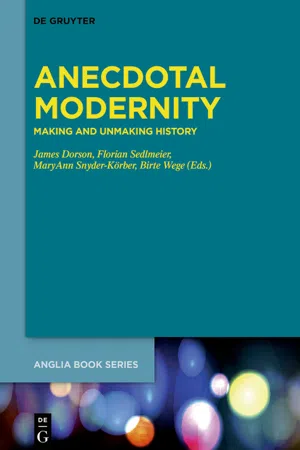Languages & Linguistics
Anecdotes
Anecdotes are short, personal stories or accounts that are often used to illustrate a point or convey a message. In the study of languages and linguistics, anecdotes can be valuable for understanding how language is used in real-life situations and for providing examples of language variation, usage, and change. They offer insights into the cultural and social aspects of language.
Written by Perlego with AI-assistance
Related key terms
1 of 5
5 Key excerpts on "Anecdotes"
- eBook - ePub
Recontextualized Knowledge
Rhetoric – Situation – Science Communication
- Olaf Kramer, Markus Gottschling, Olaf Kramer, Markus Gottschling(Authors)
- 2020(Publication Date)
- De Gruyter(Publisher)
section 4 .Tab. 2: Overview of the definition and characteristics of the anecdote as used in this analysis.Working definition Characteristics / indicators (recognizable text features for labelling) An anecdote is a short story that: The text marked as anecdote: is brief is not interrupted by another part of the speech contains one or more story characters contains one or more story characters, for example marked by (a change in) the story perspective in the text (e.g., from general information or ‘they’ to an ‘I’ / first-person perspective) is a narrative with a story development from beginning to end contains elements of narrative structure, such as orientation, a sequence of events, and a wrap-up Apart from the definition and characteristics described in table 2 , several other labelling agreements were made to systematize the analysis by different raters. For instance, examples of text signals to recognize the techniques (e.g., the transition to another perspective in the speech text) and the exact starting and ending point of text that was to be coded were recorded in the instruction.The speech and presentation texts from both corpora were systematically coded via the data analysis software Atlas.ti. Two researchers independently analyzed four speeches from both corpora (eight in total), using the labelling instructions. This analysis showed a substantial inter-rater reliability between the raters (κ=.69, p <.001).4 Results: Frequency and Examples of Anecdote Use
How do TED speakers and researchers apply Anecdotes in their presentations? This section discusses the results of the rhetorical analysis. First, quantitative results will be presented to show possible trends in similarities or differences in frequency of use by the two groups of speakers investigated in section 4.1 . After that, section 4.2 - Marcin Walczynski, Piotr Czajka, Michal Szawerna(Authors)
- 2019(Publication Date)
- Peter Lang Group(Publisher)
A joke is tightly connected with a dialogue in which a lot of pragmatic elements, such as presuppositions, ellipses and conversational implicatures, may appear. A dialogue is based on the interaction between two people: the speaker and the receiver. The speaker expects a certain reaction. A comical reaction is caused by stupidity, nonsense, etc. A comical dialogue is based on two usual elements, i.e., initiation and reaction which may, in the case of a text joke, consti- tute a form of a humorous construction (cf. Podracki 2007: 84). Violation of one of the CMs, especially the maxims of relevance and quantity, may also be the source of a joke (cf. Podracki 2007: 85). The analysis which is presented in the following section concerns not only jokes, but also Anecdotes, and that is why the latter notion is presented in this paragraph. An anecdote is “a short account of an entertaining or interesting inci- dent, of something that has happened” (Illustrated Oxford Dictionary, Metcalf 2003: 40). A similar definition can be found in A Dictionary of Literary Terms and Literary Theory (Cuddon 2013: 37), i.e., an anecdote is “a brief account of or a story about an individual or an incident.” The definition of anecdote presented by Andeweg and de Jong (2006: 169) also emphasizes the fact that an anecdote refers to a brief account of an incident, but also indicates that events depicted in an anecdote may involve real or fictitious figures. In a definition presented by Andeweg and de Jong (2006: 169), an anecdote is defined as “a short story about a certain true or fictitious incident, with a vivid or amusing twist. The incident The Images of Scotsmen and Englishmen 91 usually involves real people, often famous ones, and sometimes the speaker, but fictitious figures also occur” (Andeweg and de Jong 2006: 169).- eBook - PDF
Work and Identity
Historical and Cultural Contexts
- J. Kirk, C. Wall(Authors)
- 2010(Publication Date)
- Palgrave Macmillan(Publisher)
In relation to Williams’s broader cultural analysis outlined earlier, there is a correspondence between this relationship with the dominant and how we understand the impor- tant distinction Williams made between practical and official conscious- ness, and between dominant, residual and emergent structures of feeling. Embedded in anecdotal forms are value judgements, or to be more pre- cise, and to stay with the terminology of Volosinov, clearly articulated ‘evaluative accents’ (1973: 31). Such accentuation can be seen to express a disjuncture between dominant and subordinated understandings of the social, and therefore, for Volosinov, the concept of evaluative accent manifest in language forms contains the crux of meaning in communicative exchange. Subsequently, our conceptualisation of Anecdotes, and the structures of feeling out of or through which utterances emerge, requires a move beyond the condition of personal stories alone. To do this, we need to consider some of the core conventions characterising the form. Anecdotes are said to ‘focus on a single episode or scene … [with] a tendency to limit action to two principle actors. As a corollary, anec- dotes tend to be heavily dialogic in construction, often culminating in a punch line in the form of a striking, especially reportable, statement rendered in direct discourse’ (James, 2003: 170). This means recog- nising that Anecdotes and their construction can take testimony beyond any individual experience made available and into a glimpse of social structure – utterances replete with evaluative accents, Anecdotes emerge as kinds of morality tales, or authority stories, even historical documents (James, 2003: 171–2). 208 Work and Identity Disclosing, in their telling, a powerful moral and ethical dimension, the anecdote enables us to reflect further on important themes and topics. - eBook - PDF
- (Author)
- 2013(Publication Date)
- Yale University Press(Publisher)
In a book that explores the complexity of art history’s relationship with a wide variety of sophisticated literary forms, genres, and tones of voice, it might seem churlish or bathetic to spend time with the anecdote. As Paul Fleming recently put it: The reliance on Anecdotes in the midst of making a point or, worse still, as argumentation itself seems to mark a certain helplessness, a sign of not knowing what to say next; or of wanting to avoid the heavy lifting required for fine argumentation; or of hoping to reach a wider audience by employing a more accessible, popular medium; or of simply giving in to the seduction of narration. 1 However, one of the joys and triumphs of New Historicism in the humanities was the revival of serious interest in the anecdotal. The anecdote was a counter-weight to the authoritative, dominant, and “joined-up” narratives of History with a capital H in order to puncture a bland fabric with the prick of the mysterious, fragmentary, joyous, violent, and overlooked. Anecdotes thereby enriched or sub-verted coercive tales of progress and victory by way of the destabilizing frisson of Eros, the salutary shudder of Thanatos, or the resonant, melancholy minor key of resistance. 2 In the history of art, we have never had to “bring back” the anecdote, champion it, or defend it as an alternative to authoritative or authoritarian nar-ratives, as it has been deeply rooted in art-historical writing since its origins, and remains a powerful and fertile presence in our thinking and writing. Here, I will briefly explore the depth of our debt to the anecdotal, and suggest that we see anecdote not as a last resort but as a profound and effective strategy, one that has constantly provided provocation and nourishment to the discipline. - eBook - PDF
Anecdotal Modernity
Making and Unmaking History
- James Dorson, Florian Sedlmeier, MaryAnn Snyder-Körber, Birte Wege, James Dorson, Florian Sedlmeier, MaryAnn Snyder-Körber, Birte Wege(Authors)
- 2020(Publication Date)
- De Gruyter(Publisher)
Within the classical canon we find numerous examples of short, self-contained narratives that can be described in contemporary terms as Anecdotes. Plutarch, for instance, uses brief and striking stories to give the reader access to the Lives of his biographical subjects.¹ ⁷ In The Laughter of the Thracian Woman (1987), Blumenberg traces the travels and transformations of a single anecdote. It is the story of the stargazing philosopher Thales of Miletus whose accidental plunge into a wall provokes laughter from a maidservant, the Thracian woman of the title. Blumenberg ’ s study moves from the fables of Aesop (c. sixth and sev-enth centuries B.C.; collected by Babrius and Phaedrus: c. first century) through the Theaetetus dialogues of Plato (c. 369 B.C.) to the recourses of Friedrich Nietzsche and Martin Heidegger. This effort is less interested in illustrating the longevity of a single anecdote than in demonstrating the productivity of the col-lision between philosophical abstraction and the pragmatically laughing life-world figured in Anecdotes. The anecdote, in this reading, is not just a metaphor for the challenges of theory, but a motor for its self-reflection and pro-duction. In all these instances, the minor qualities of the anecdote secure the short narrative ’ s integration and functionalization into more expansive modes of dis-course such as biography, philosophy, and theory. “ Portability ” favors narrative circulation long before Gutenberg. Oral culture requires no printing press. Yet the brevity, clarity, and repeatable simplicity most particularly afford mechanical reproduction and successor technologies.
Index pages curate the most relevant extracts from our library of academic textbooks. They’ve been created using an in-house natural language model (NLM), each adding context and meaning to key research topics.
